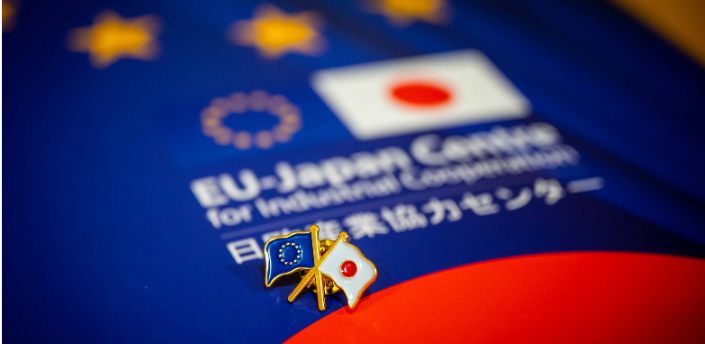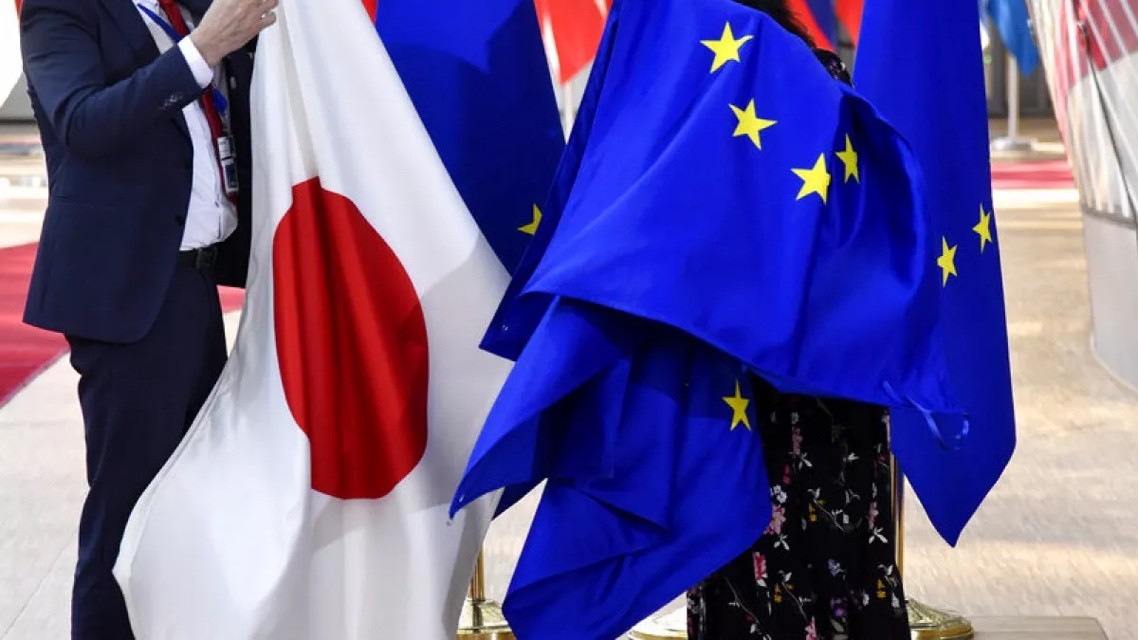By Vera Rodriguez,
The world is shifting in form and focus. Russia’s unprecedented war against Ukraine or the impact of COVID-19 on global trade, contribute to this change of heart in international relations. The risks of concentrating industries in one country have made international actors work on diversifying their supply chains, especially in key sectors such as connectivity, energy, or raw materials. Furthermore, the focus is no longer solely on Europe; other regions, including Asia, are claiming their place in international relations.
In this region, the European Union had what many have described as a likely partner —one with whom Brussels would jointly share 40 percent of the world’s gross domestic product and geopolitical concerns. They both have Russia as a neighbour, the United States as a traditional ally, and China as a challenge. However, their diplomatic ties were not seriously considered until a few years ago. Today, Japan is the EU’s second-biggest trading partner in the region. Joint EU-Japan initiatives have fundamentally grown in recent years.
After decades of seemingly indifference towards each other, the European Union and Japan have participated in novel agreements. The initial two were the Strategic Partnership Agreement (SPA) and the Economic Partnership Agreement (EPA). The former represents an agreement based on shared values; the list ranges from rule of law, democracy, fundamental freedoms, to security, and energy. The EU’s largest bilateral free trade deal, the EPA, later supplemented the Strategic Partnership. It creates an open trade zone covering nearly one-third of the global GDP, encompassing sectors such as machinery, motor vehicles, chemicals, and food products. These two deals are the door for a recent cooperation that directly tackles both partners’ insecurities as a global power, in the region, and their supply chains.
This change of heart reveals two main trends. First, an evolving landscape where an Indo-Pacific aliance has become essential. Secondly, it formalizes the wake-up call of the European Union and Japan regarding their role in global affairs. Both powers are used to having relative influence in the regional and the international stage. Yet, in recent years, the EU fears losing it, and Japan is looking for ways to regain it. Cooperation is highly strategic, as it diversifies critical supply chains and creates a more powerful, joint market. This secures stability and protects them from potentially aggressive neighbours (Russia, North Korea, China). Therefore, it is no surprise that the chosen areas of cooperation are defence, digital affairs, and connectivity.

Regarding security and defence, this partnership, introduced in 2024, aims to enhance cooperation in maritime security, space, cybersecurity, and hybrid threats, including foreign information manipulation, and interference. It also includes joint military exercises and exchanges between defence industries, marking the EU’s first agreement with an Indo-Pacific country. In this context, since 2022, Japan has kept increasing its expenditure in defence to achieve the NATO standard of 2% of GDP by 2027. Partly, it aims to deter an ever-more assertive China, which is putting more pressure on Taiwan. However, it also seeks to regain importance in the international sphere. Now, Japan is collaborating with Italy and the UK on a next-generation fighter jet. For the European Union, this collaboration serves as a response to Russia’s aggression and North Korea’s sending of troops to aid Moscow in Kiev.
Moreover, connectivity and the digital world are critical areas. Despite their importance, the EU had fell behind other global powers in capturing a share of the semiconductor market. These chips, crucial for everything from cars to microwaves and ovens, are mainly manufactured in Taiwan and South Korea. Japan, conscious of the implications of overreliance on other partners, has begun to increase its semiconductor investments. Brussels, cooperating with Tokyo, offers the latter good trading commerce to boost its developing industry, while giving time for the EU to get their semiconductors from Japan (as well as South Korea and Singapore) and potentially build an EU-based hub.
Regarding digital trade, Japan has also pushed for a deeper cooperation between the Brussels and Tokyo to generate more legal certainty in data exchanges. They included the new data adequacy decision in their Economic Partnership Agreement. Finally, the EU-Japan relationship landscape comprises a green alliance that complements these other areas to ensure a sustainable outcome.
This brief overview shows that the EU and Japan are closer than ever. As stated, all these agreements hint at a deeper regional trend and shift of priorities globally. At the time of writing, the growing relationship between Tokyo and Brussels has established some groundbreaking achievements. For instance, the digital partnership established in 2022 was later extended to Canada, South Korea, or Singapore. Furthermore, the adequacy decision regarding data flows, an initiative pushed by Japan, is now an EU diplomatic tool that is used with other countries worldwide such as Andorra, Argentina, Canada, Faroe Islands, or Switzerland. A tool that has enabled these countries to add legal measures that protect data. However, these are only the initial results of an enhanced partnership after decades of lack of interaction. How much they accomplish together in digital affairs and other, more recent areas such as security or sustainability is yet to be seen.
References
- Pedro Silva Pereira, “The EU–Japan Economic Partnership Agreement from the European Parliament’s Perspective: A Landmark Agreement beyond Trade”. Journal of Inter-Regional Studies: Regional and Global Perspectives (JIRS) 2 (2019): 18
- Hook, Glenn D., Julie Gilson, Christopher W. Hughes, and Hugo Dobson. Japan’s international relations: politics, economics and security. Routledge. Oxfordshire 2011.
- Oliviero Frattolillo. Diplomacy in Japan-EU Relations. Routledge. Oxfordshire 2013.
- Japan’s semiconductor sector: What’s behind the chip reboot? DW. Available here
- Adequacy decisions: review of 11 third countries. activeMind.legal. Available here




